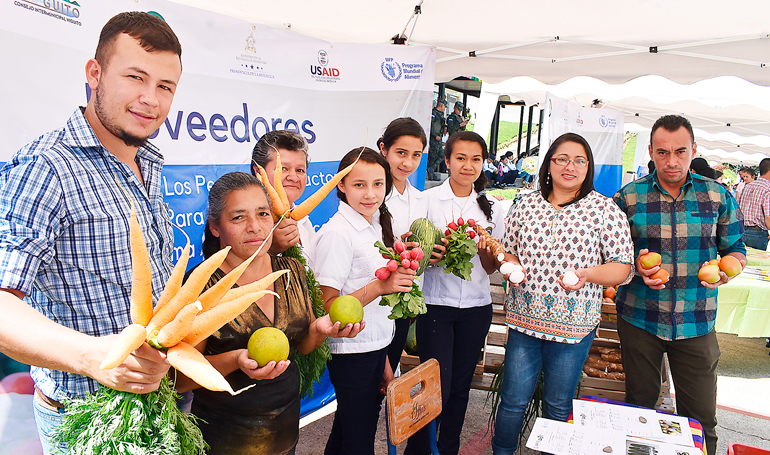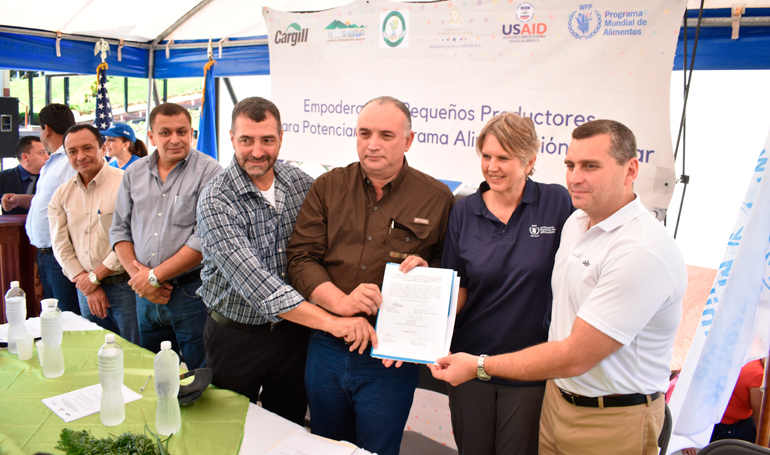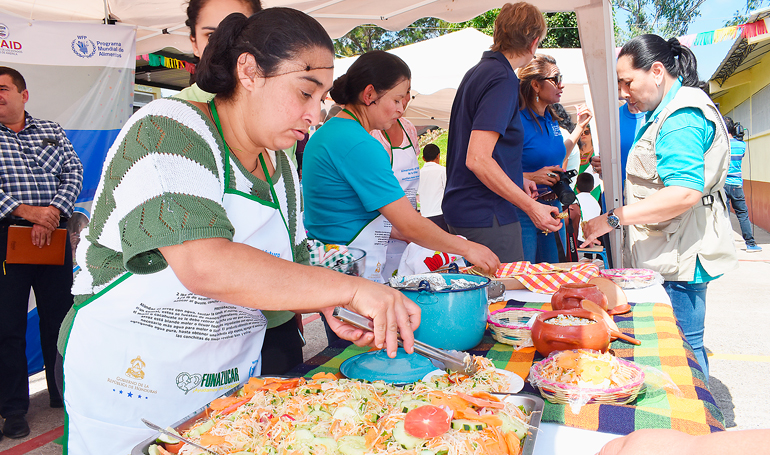
Cargill, USAID and WFP Join Forces To Support Farmers and Schoolchildren in Honduras
A new partnership announced last week will help source fresh fruits and vegetables for school meals programs in more than 100 classrooms across Honduras from vendors with a uniquely local flavor: Honduran farmers looking for new markets for their produce.
Cargill, USAID, and the World Food Programme (WFP) announced a new “home-grown” school meals program in communities across the country that will connect hungry children with high-quality produce from local farmers. The initiative, in coordination with the national government, is designed to stimulate the local economy while providing a strong incentive for parents to send their children to school for a nutritious school meal.
“This strategic alliance of cooperation between international organizations and a company committed to achieving Zero Hunger in Honduras, such as Cargill, is what makes the difference and allows us to support more people than would be possible if we did it alone,” said WFP representative Judith Thimke.
The partnership comes at a pivotal time as the government tries to reduce malnutrition rates and increase food security. One in four children suffer from chronic malnutrition and an estimated 1.5 million Hondurans face hunger.


Local purchases will be made through seven networks of local food associations, including 500 small producers of vegetables, fruits, eggs and dairy products in the municipalities of Copán and Santa Bárbara. For the next two years, the partnership aspires to build a sustainable pipeline of food from local farmers into 121 schools serving more than 6,000 students.
“This alliance under a model of food security and sustainable value chains, not only supports the national snack program, but the millennium goals around the eradication of hunger, nutritional improvement and promotion of sustainable agriculture, educational quality, means of economic growth and gender equality, all objectives aligned with our purpose of nourishing the world in a safe, responsible and sustainable way,” said Farid Kattum, general manager of Cargill in Honduras.
In addition to food provisions in school classrooms, the program includes capacity-building activities with local authorities and parent committees, such as training in food safety, hygiene, and nutrition.
“For USAID, it is of the utmost importance that the private sector join the efforts of the government of Honduras to improve malnutrition rates in Honduras,” said Fernando Cossich, director of USAID in Honduras. “We know that this alliance will benefit not only children in schools, but also families that will now have higher incomes, and communities that will have access to new and better markets.”
Learn more about how WFP USA’s partnership with Cargill is changing the world.




